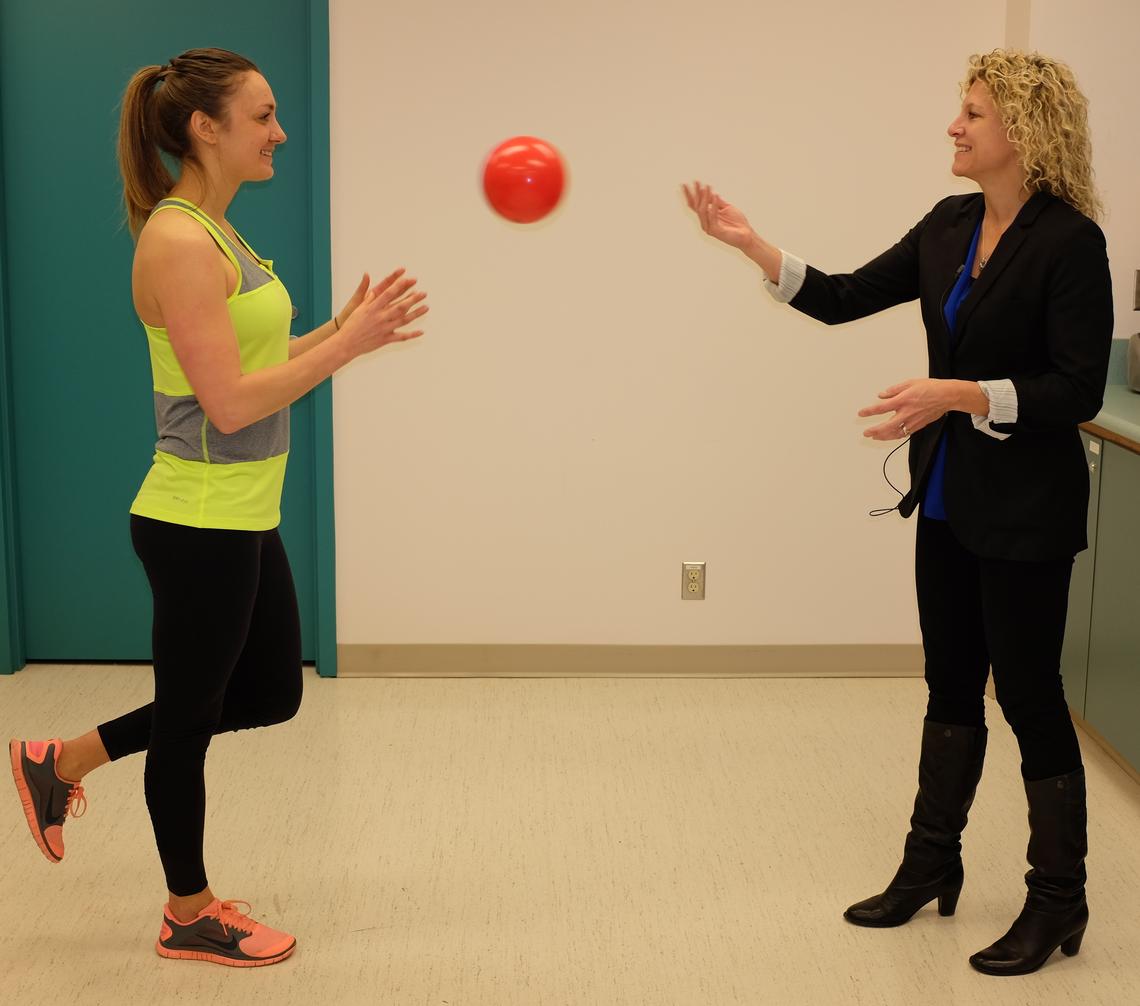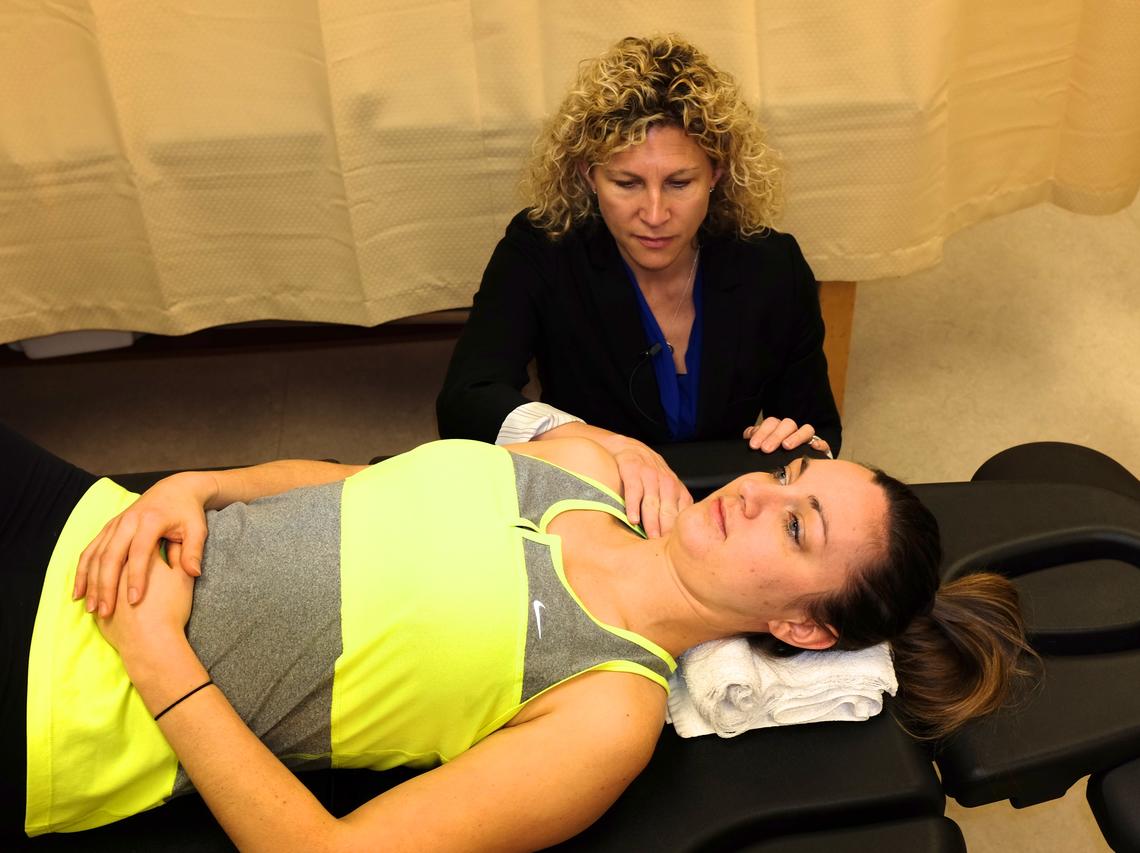Feb. 23, 2018
Kinesiology researcher shares latest concussion research during Pyeongchang Olympics

Kathryn Schneider demonstrates the latest rehabilitation techniques for concussion.
Dr. Willem Meeuwisse
Quick turns, speed and pressure make ice hockey exciting. All this hard work can end abruptly when a player gets a concussion. Returning to their game quicker is the goal of researcher and physiotherapist Kathryn Schneider, who spoke about her latest treatment techniques at the Pyeongchang Olympics.
Schneider, PT, PhD, was invited by the International Olympic Committee Medical and Scientific Commission to present ice hockey concussion rehabilitation to medical staff with nations competing at the Games. Her research and clinical work have garnered positive results getting athletes back to the sport they love sooner, when combining treatment for the neck and balance systems, including sport-specific training, following concussion.
Earlier medical clearance
“It is exciting for me to see the positive effect this treatment has on the players,” says Schneider, an assistant professor in the Faculty of Kinesiology at the University of Calgary, who presented via video and was previously invited to present at the Olympic Games in Sochi in 2014 and Rio in 2016.
Schneider’s rehabilitation techniques create better head, neck and balance control after concussion by training inner ear and vision control, head and neck control and balance. Once athletes are able to perform the more simple drills proficiently, sport-specific activities and on-ice drills are part of the final stages of rehabilitation before returning to play.
Athletes undergoing vestibular and cervical treatments for concussion were four times more likely to be medically cleared in eight weeks after treatment started compared to those who followed the standard protocol of rest first then exercise, says Schneider. (Vestibular treatment is an exercise-based treatment the improves balance and reduces dizziness, and cervical treatment focuses on the neck.)

Schneider's research has garnered positive results getting athletes back to the sport they love.
Dr. Willem Meeuwisse
Leader in concussion rehabilitation
Schneider is an international leader on rehabilitation research in concussion in sport. She led the systematic review on the effects of rest and treatment and was an expert panellist, scientific committee member and an author of the latest International Consensus Statement on Concussion in Sport (including preventing, assessing and treating sport-related concussions), which was published in two special editions of the prestigious British Journal of Sports Medicine.
Sharing expertise is a tradition at the Olympics. The aim of the International Olympic Committee Medical and Scientific Commission is to provide team doctors, physiotherapists and other health care professionals the most effective medical advice to help aid all athletes, Olympians and amateurs. This year’s program in Pyeongchang includes a wide variety of topics on sports medicine and sports physiotherapy, from emergency care and injury management to debriefing medical services and anti-doping.
Sign up for ongoing studies
Those with prolonged effects of concussion may wish to sign up for some of the new studies at the Sport Injury Prevention Research Centre. Schneider, who is leading these studies, is looking at treatment methods, including physiotherapy and how different forms of exercise and rehabilitation may be combined to help recovery after a concussion. For more information contact concussion.rehab@ucalgary.ca.
The Faculty of Kinesiology’s Sport Injury Prevention Research Centre at the University of Calgary is one of 10 International Research Centres for the Prevention of Injury and Protection of Athlete Health supported by the International Olympic Committee.
Kathryn Schneider of the Faculty of Kinesiology is a member of the Hotchkiss Brain Institute (HBI). Led by the HBI, Brain and Mental Health is one of six research strategies guiding the University of Calgary toward its Eyes High goals.
